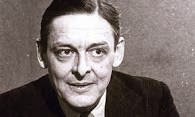'Cirque de la Symphonie': Remarkable dexterity and control shared from the symphony stage

Among the many ways music can contribute to visually accessible performance media, 'Cirque de la Symphonie' is perhaps the most spectacular. A full symphony orchestra adds so much more to what is already a mesmerizing display of precision acrobatics, graceful and appealing props and costumes, and extraordinary muscular control and balance. The Indianapolis Symphony Orchestra is ending its 2013-14 pops season this weekend with four shows by this international troupe. (Remaining are tonight's 8 o'clock show and Sunday afternoon's "symFUNY Sundays Series" performance at 3.) Tsarkov applies foot dexterity to rings in an appearance with another orchestra. Conducted by Jack Everly, who a couple of days ago extended his contract as ISO pops music director through the 2022-23 season, Friday's performance seemed close to flawless — a couple of well-covered juggling drops being the sole exception. The orchestra was putting its best foot forward, too...





